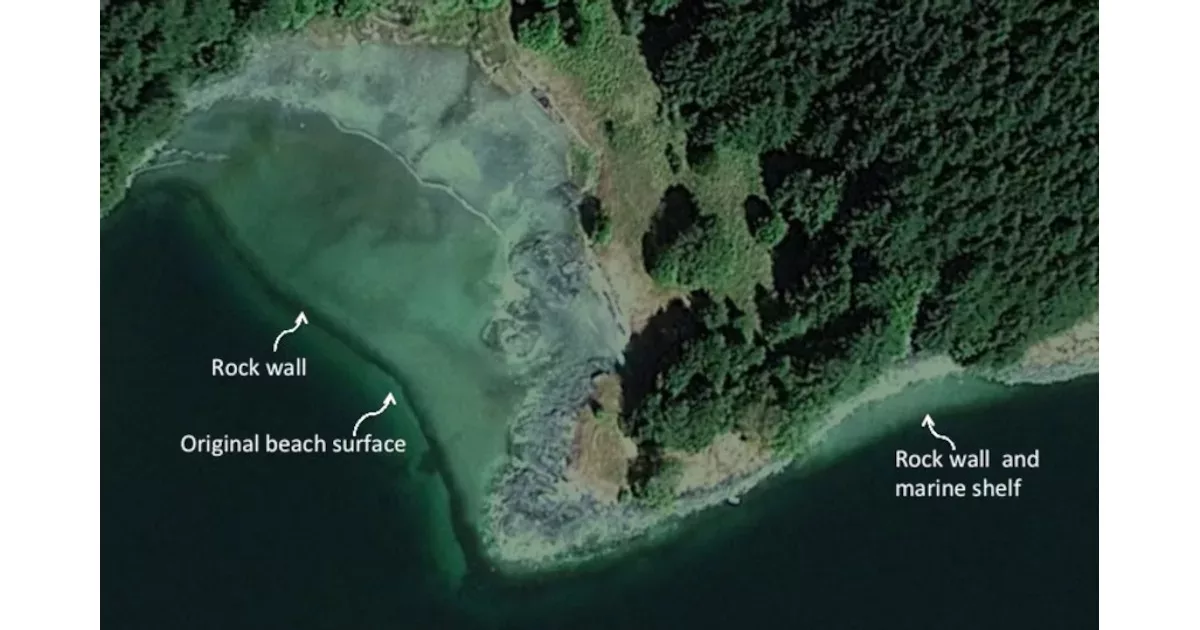The Clam Garden Network
Researchers from academic and non-academic communities explore together the many aspects of clam gardens constructed by coastal First Nations of British Columbia (Canada) and Native Americans of Washington State and Alaska (USA)

Clam gardens are ancient intertidal features constructed by coastal First Nations of British Columbia (Canada) and Native Americans of Washington State and Alaska (USA). The Clam Garden Network is a diverse community of Indigenous and non-Indigenous knowledge holders including academics, community members, researchers, and resource managers from British Columbia, Washington State, and Alaska. Together, we celebrate, promote, and seek to uphold the cultural and ecological importance of clam gardens and traditional seafood management.
Context
Clam gardens enhance the production of culturally important seafoods and have been a part of Indigenous food systems for at least 4,000 years. Today, Indigenous Peoples throughout the Pacific Northwest are reclaiming clam garden construction, management, and related cultural practices to enhance food security and sovereignty, support and assert rights and title in coastal and ocean spaces, and revive ancestral teachings and practices.
Clam gardens and other culturally important beaches have a legacy as places of learning. While out on the shoreline together, elders, youth, and other community members reflect on teachings, observations and stories about marine systems, cultural values, cosmology, economics, and the importance of family.
Method
The Clam Garden Network embraces different ways of knowing, shares ideas, and uses various research approaches, tools, and data to build knowledge about people and intertidal resources. We celebrate, promote and uphold clam gardens because they are a focal point to advance Indigenous rights and governance, intergenerational knowledge, and food security in the face of climate change.
Benefits
Our goals are to:
- build solidarity and cooperation across people, communities and disciplines;
- support clam garden restoration;
- stimulate conversation and learning that challenge predominantly Western ways of doing science and resource management;
- and work in ways that respect Indigenous community selfdetermination and resurgence.
Nicole Smith, independent archaeologist, Victoria, B.C, and Jennifer Silver, University of Guelph
This text has first been published by BRIDGES in a special brochure. BRIDGES in a member of The Earth-Humanity Coalition.
SUBSCRIBE TO OUR NEWSLETTER
To stay up to date with our projects and the development of the EHC
Read more articles

Gian Francesco Giudice: “Ethical responsibility is essential in fundamental research”
From hypothetical black holes to environmental impact studies, CERN navigates risk, transparency, and moral responsibility at the frontiers of human

Dealing with the complexity of society and environment
A global toolkit for tackling complex problems with more than 600 different methods Ever wish you had a free toolkit

The Moon & the Global South: Voices, Risks & Promise
Researchers warn that without inclusive governance, the Moon could become “a new arena for old patterns of exclusion” When rockets

Borko Furht: “AI shouldn’t be given much autonomy without maintaining accountability”
Beyond Superintelligence: The Real Challenges of Keeping Humans ‘In the Loop’ Borko Furht is a professor in the department of